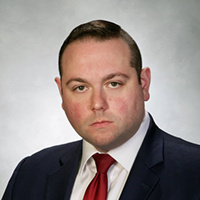Abington Felony Lawyer, Pennsylvania
Sponsored Law Firm
-
 x
x

Click For More Info:
-
Ciccarelli Law Offices
Numerous Office Locations Available» view mapCriminal Defense Success Is Our Mission
You gain the resources of a Team with 100 years of combined experience fighting for their clients throughout Pennsylvania.
888-240-0896
Christopher Bokas
✓ VERIFIEDAttorney Christopher Bokas handles all felonies and misdemeanors, including white collar crimes, juvenile crimes, drug offenses, parol and probation v... (more)
Lauren A Wimmer
✓ VERIFIEDAttorney Lauren A. Wimmer has represented individuals charged in both state and federal court with charges ranging from misdemeanors like drug and var... (more)
Richard John Fuschino
✓ VERIFIEDIf you are facing criminal charges in the Pennsylvania state or federal courts, you want a law firm with the experience, guts and the dedication to fi... (more)
Zak Taylor Goldstein
✓ VERIFIEDZak Goldstein is a Philadelphia criminal defense and civil rights attorney. Zak Goldstein has experience trying hundreds of cases before judges and ju... (more)
Arik T. Benari
FREE CONSULTATION
CONTACTArsen Kashkashian
Coleen F. Middleton
FREE CONSULTATION
CONTACT Lee Ciccarelli West Chester, PA
Lee Ciccarelli West Chester, PA AboutCiccarelli Law Offices
AboutCiccarelli Law Offices Practice AreasSpecializations
Practice AreasSpecializations




